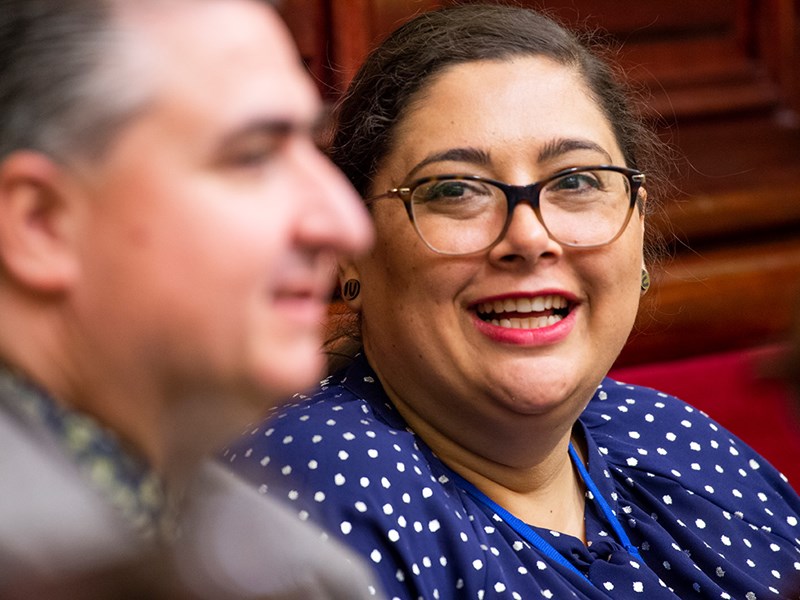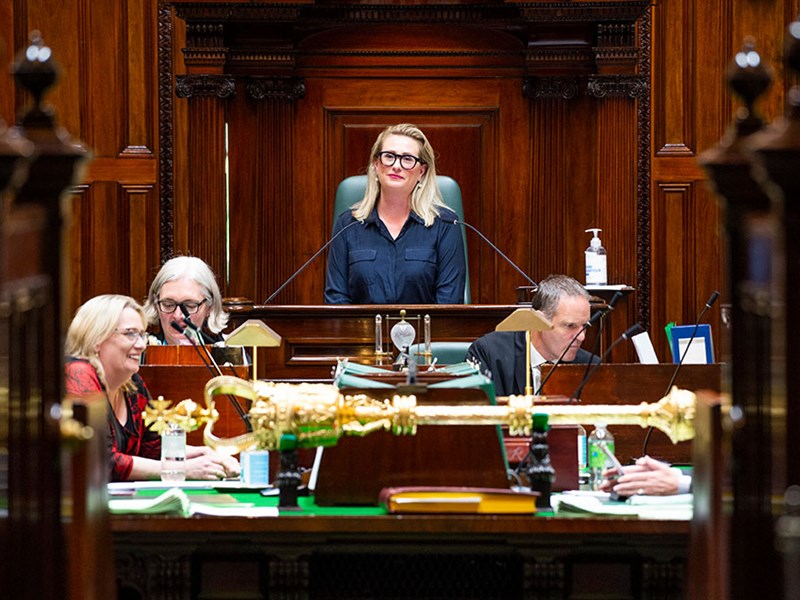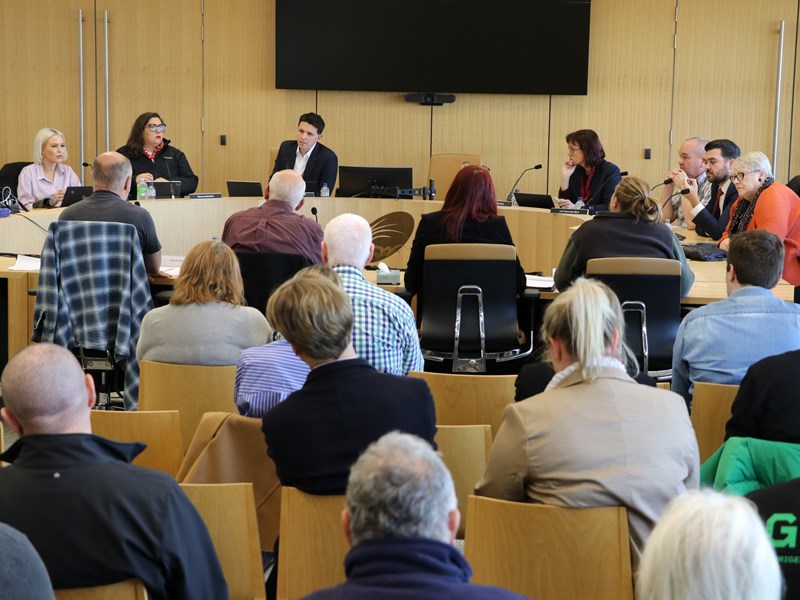A guide to member roles and terms
As well as representing their electorate and debating laws, members can take on other roles in the Parliament.

-
Government
The members of Parliament with the authority to govern Victoria. They have this authority because they are supported by the majority of members in the Legislative Assembly. The government can be made up of members from two or more parties in coalition. Government members sit in both the Legislative Assembly and the Legislative Council.
-
Opposition
The members of Parliament who belong to the largest non-government party or coalition in the Legislative Assembly. The opposition can be made up of members of two or more non-government parties in coalition. Opposition members sit in both the Legislative Assembly and the Legislative Council.
-
Coalition
A group of two or more political parties that agree to work together. In Victoria, the Liberal Party and the Nationals are currently in coalition.
-
Independent
A member who does not belong to a party. They may vote with the government or with the opposition, or they may not support either government or opposition policy.
-
Minor party
A party with one or more members of Parliament that is not in government or opposition.
-
Premier
The leader of the party or coalition of parties that has formed government. By tradition, the Premier is always a member of the Legislative Assembly. They direct government policy and represent the Victorian Government at meetings, functions and official ceremonies.
-
Leader of the Opposition
The leader of the largest non-government party or coalition of parties in the Legislative Assembly. They direct the opposition’s policies and strategies and present themselves as an alternative Premier.
-
President of the Legislative Council
The President is elected by the other members of the Legislative Council to preside over meetings in their Chamber. The President is also known as the Chair or Presiding Officer.
-
Deputy President and Acting Presidents
One Deputy President and a number of Acting Presidents are elected by other members of the Legislative Council to take on the President’s sitting day responsibilities when the President is not in the Chamber.
-
Speaker of the Legislative Assembly
The Speaker is elected by the other members of the Legislative Assembly to preside over meetings in their Chamber. The Speaker is also known as the Chair or Presiding Officer.
-
Deputy Speaker and Acting Speakers
One Deputy Speaker and a number of Acting Speakers are elected by other members of the Legislative Assembly to take on the Speaker’s sitting day responsibilities when the Speaker is not in the Chamber.
-
Minister
A minister is a government member chosen by the Premier to take on extra responsibilities. Each minister is responsible for one or more policy areas, known as portfolios. Ministers are also responsible for the government department relevant to their portfolio. Ministers often have more than one portfolio.
-
Parliamentary secretary
A member who assists a minister with their portfolio responsibilities.
-
Shadow minister
A shadow minister is a member of the opposition who has responsibility for one or more policy areas, known as portfolios. A shadow minister presents alternative ideas and policies about a portfolio area. This prepares the opposition to take on the role of government if it wins the next general election.
-
Cabinet and shadow cabinet
When ministers meet together to decide on policy, they are called ‘the cabinet’. When a group of shadow ministers meet together, they are called ‘the shadow cabinet’.
-
Frontbencher
Ministers and shadow ministers are known as frontbenchers. They sit in the front row of seats in the Chambers – literally the ‘benches at the front’.
-
Backbencher
Members of Parliament who are not ministers or shadow ministers are known as backbenchers. They sit in the second and third rows of the seats in the chamber—literally the ‘benches at the back’.
-
Crossbencher
Any member of Parliament who is not part of either the government or opposition is known as a crossbencher. They can be a member of a minor party or an independent member.
-
Leader of the House (Assembly) and Leader of the Government (Council)
The Leader of the House in the Legislative Assembly is a minister who organises government tactics in that chamber, including the sitting day schedule. The Leader of the Government in the Legislative Council has the equivalent role in the Legislative Council. These roles are different to that of the Premier.
-
Manager of Opposition Business (Assembly) and Leader of the Opposition (Council)
The Manager of Opposition Business in the Legislative Assembly is a shadow minister who organises government tactics in that chamber and negotiates the sitting day schedule with the government. The Leader of the Opposition in the Legislative Council has the equivalent role in the Council. The Leader of the Opposition in the Legislative Council should not be confused with the Leader of the Opposition in the Legislative Assembly, who is the alternative premier.
-
Whip
A whip is a member of Parliament chosen by their party to maintain party discipline. Whips make sure their party members are ready to speak in debates and vote in divisions.


